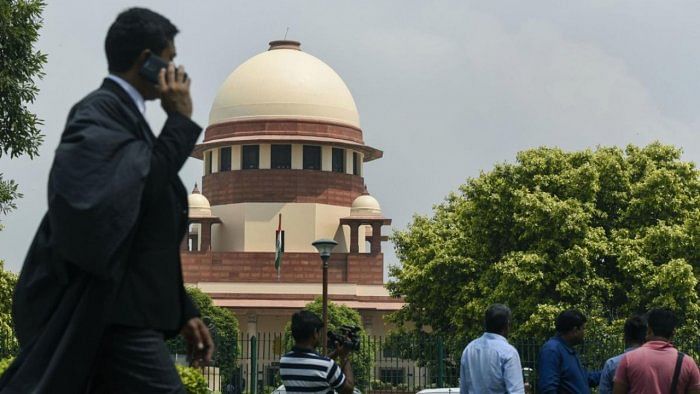
The Supreme Court on Friday declared that a production unit --- set up after requisite approvals and contributing to the economy by providing livelihood to hundreds of people --- cannot be closed down for the technical irregularity of want of prior environmental clearance, though it has applied for this ex post facto.
"Where the adverse consequences of denial of ex post facto approval outweigh the consequences of regularisation of operations, and the establishment concerned otherwise conforms to the requisite pollution norms, it should be given in accordance with the law, in strict conformity with the applicable Rules, Regulations and/or Notifications," a bench presided over by Justice Indira Banerjee said.
The court, however, added, to protect future generations and to ensure sustainable development, it is imperative that pollution laws be strictly enforced.
"Under no circumstances can industries, which pollute, be allowed to operate unchecked and degrade the environment. The deviant industry may be penalised by the imposition of heavy penalty on the principle of ‘polluter pays’ and the cost of restoration of the environment may be recovered from it," the bench, also comprising Justice J K Maheshwari, said.
At the same time ex post facto clearances and approvals and removal of technical irregularities in terms of a notification under the Environment (Protection) Act, 1986 law cannot be declined with pedantic rigidity, oblivious of the consequences of stopping the operation of mines, running factories and plants, the bench added.
In a judgement, the top court set aside an order by the National Green Tribunal of June 3, 2021, for closing down units of M/s Pahwa Plastics Pvt Ltd for not having prior environmental clearance, though it had applied for it ex post facto and the Union government had found it eligible for it. The only thing against the units, which employed 8,000 workers, was the procedural lapse of not obtaining the environmental clearance, it noted.
The bench pointed out the 1986 law does not prohibit ex post facto Environmental clearance.
"Some relaxations and even grant of ex post facto EC in accordance with the law, in strict compliance with Rules, Regulations, Notifications and/or applicable orders, in appropriate cases, where the projects are in compliance with environmental norms, is not impermissible," the bench added.
The court directed the Union government to take a final decision on the application by the company within three weeks, as the Centre had proceeded with the request and even held a public hearing for it.
Watch the latest DH Videos here:
